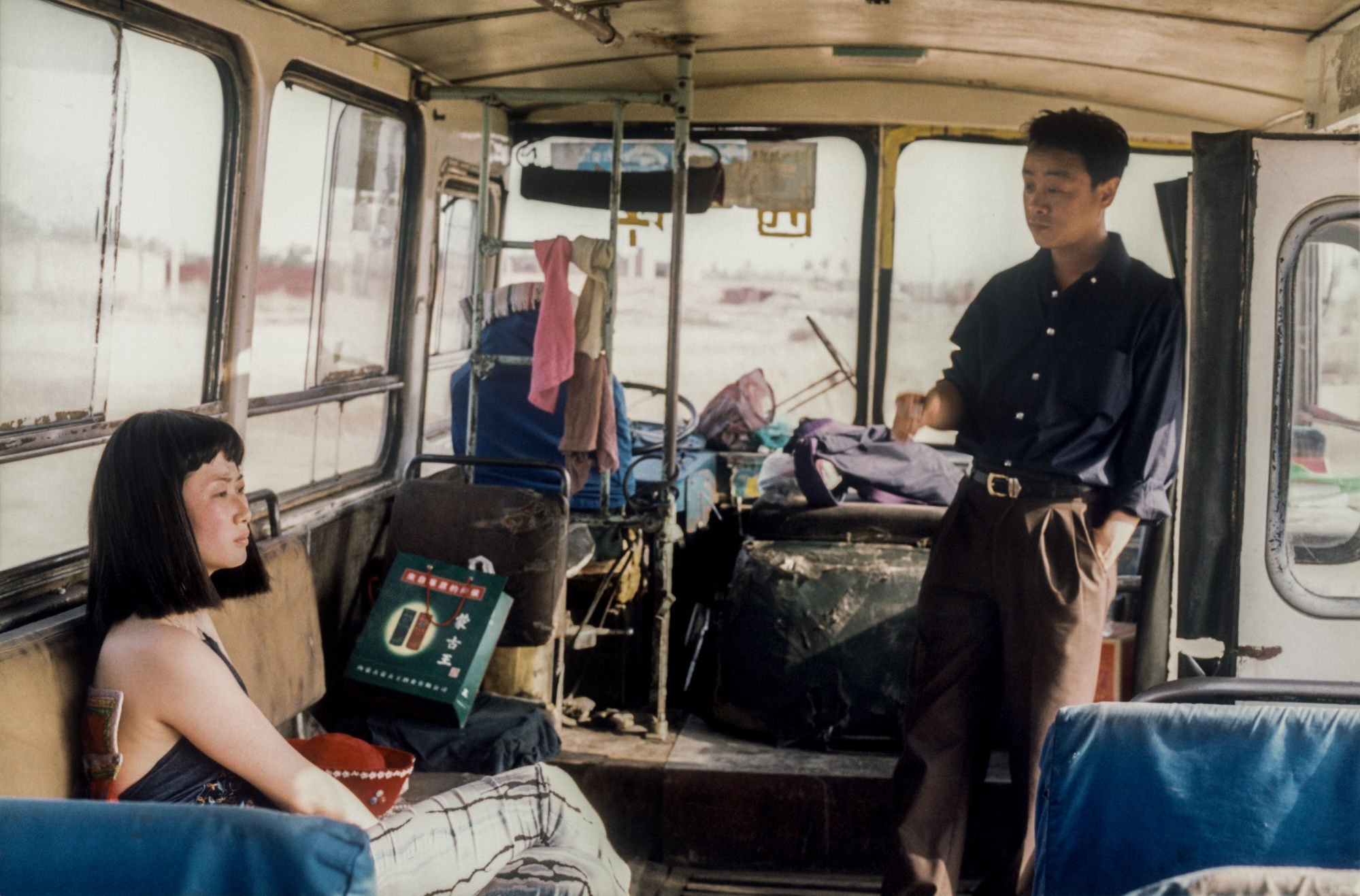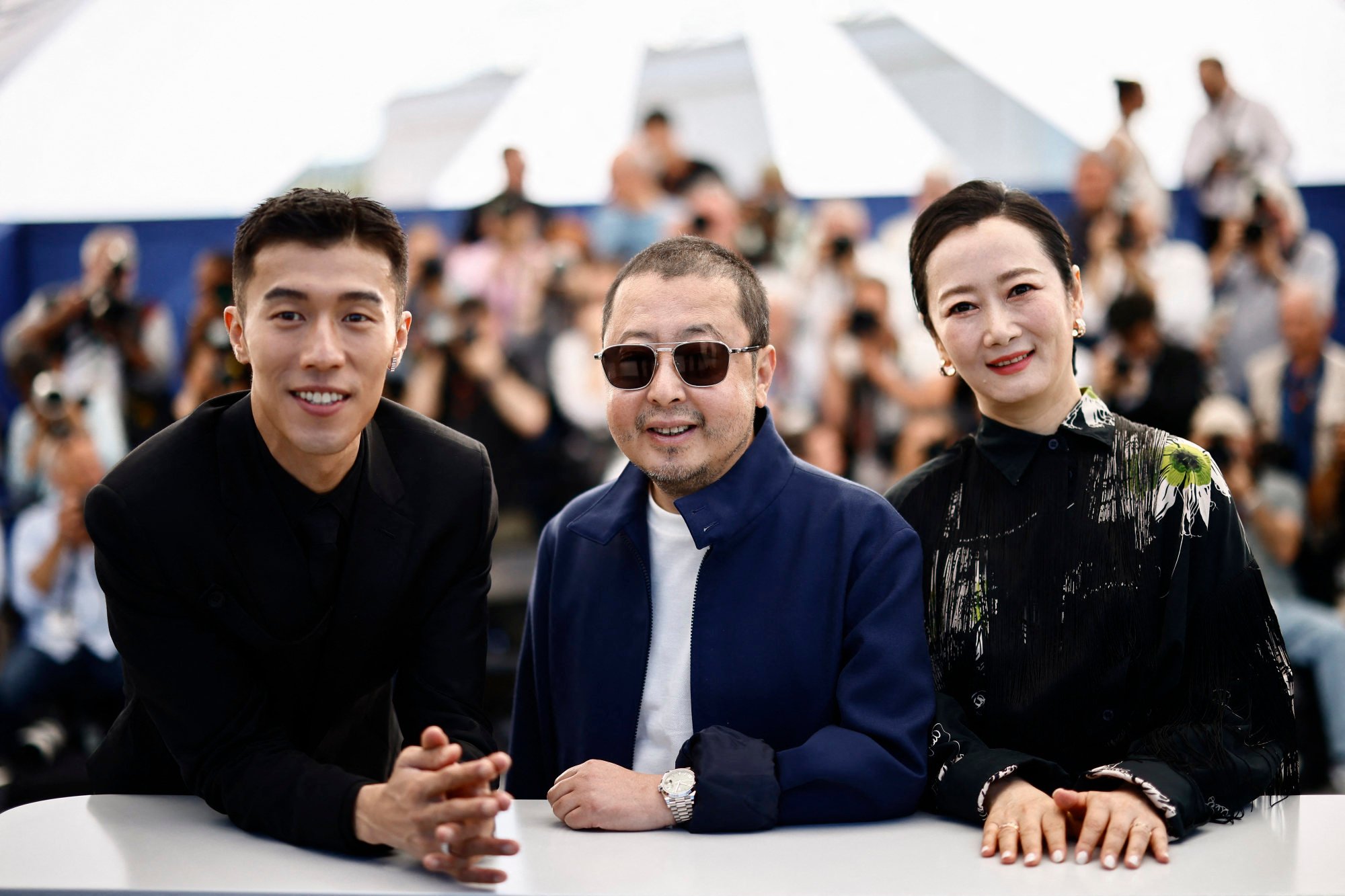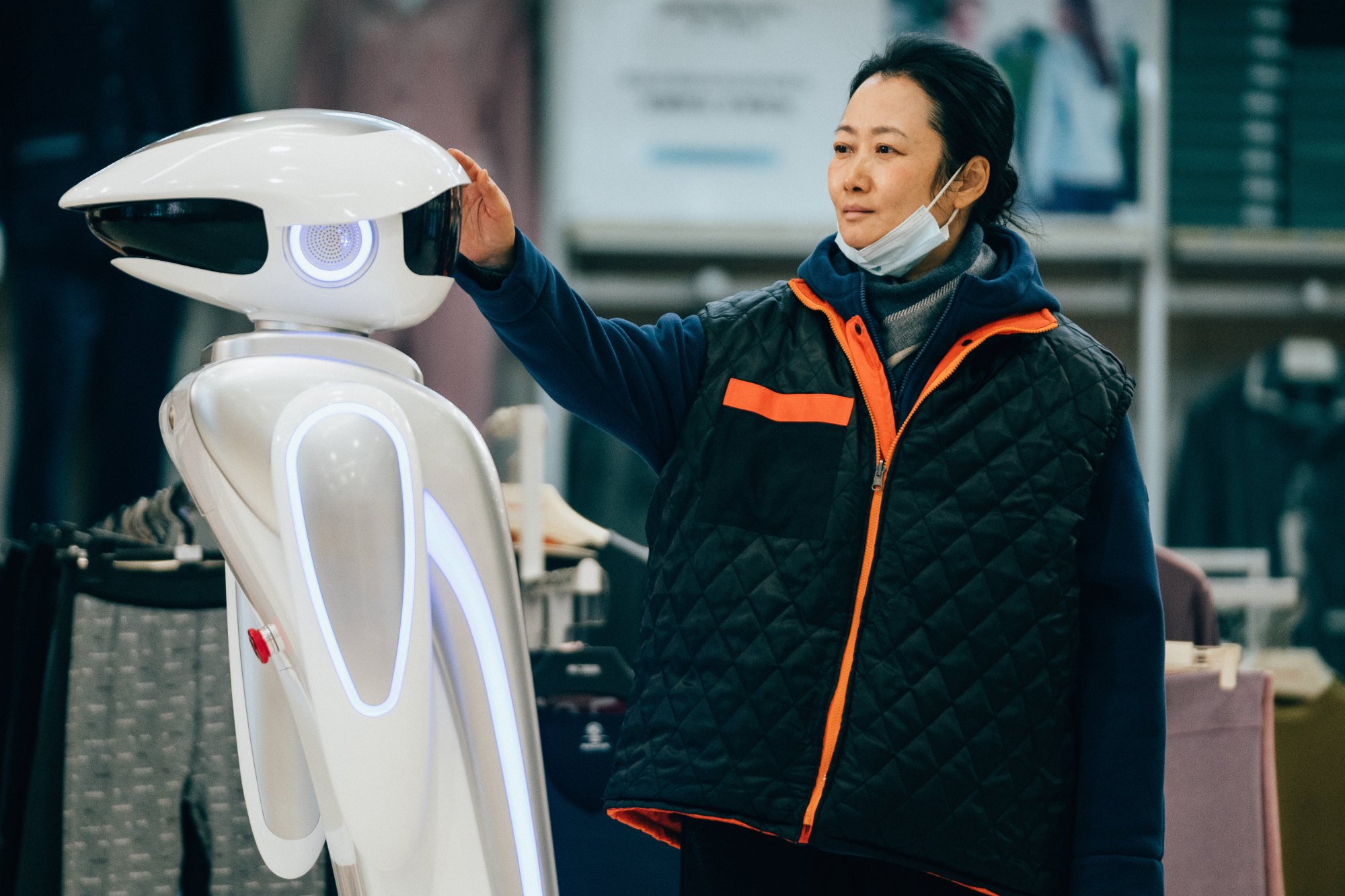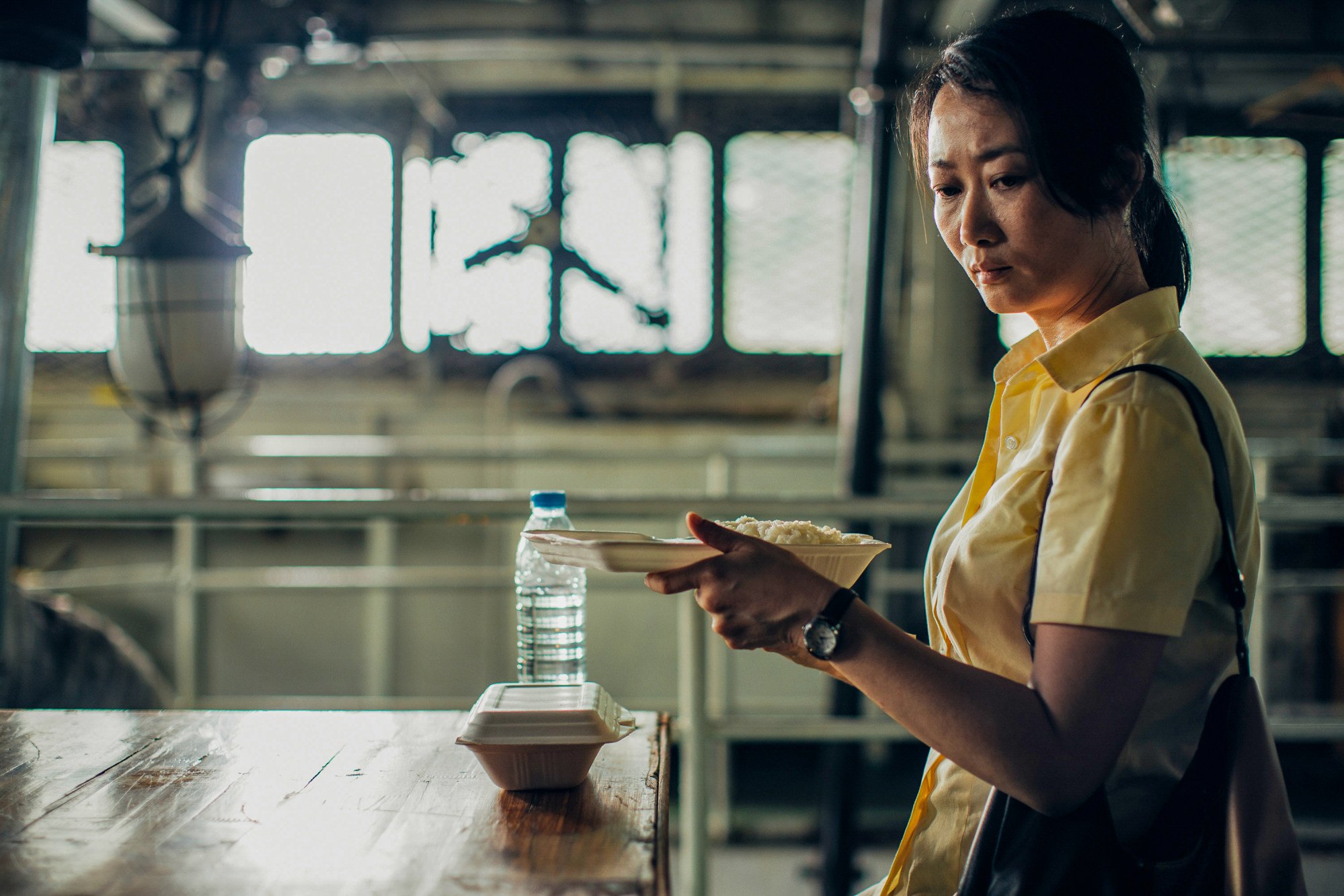
Cannes 2024: Chinese director Jia Zhangke, film festival veteran, on capturing 20 years of change in Caught by the Tides
- Jia Zhangke’s 2024 Cannes Film Festival entry is a blend of footage shot between 2001 and the pandemic, and unlike anything he has brought to the event before
- The filmmaker talks about how his movie traces the changes he saw in China in the years it took to film, and his relationship with its star, his wife Zhao Tao
Something old, something new, Jia Zhangke’s latest film, Caught by the Tides, is one of the most curious works to emerge at this year’s Cannes Film Festival.
Typical of Jia’s methods, Zhao’s introduction to viewers of the film comes via repurposed material from their second feature together, 2002’s tale of disaffected youth Unknown Pleasures.
Here Zhao plays Qiaoqiao, a model living in the coal mining city of Datong in northern China whose boyfriend, Guo Bin (Li Zhubin), becomes her manager.
After he decides to leave Datong to seek his fortune she is bereft, until she eventually goes on a wistful quest to find him, one that stretches over years and will ultimately bring her back to Datong a changed woman.
When Jia began the film in 2001, he started shooting with no end game in mind. “At the time, I was very excited about what was happening in China […] with a lot of hopefulness, a lot of excitement and chaotic energy that I wanted to really capture,” he says when we meet for this interview on a busy day in Cannes’ Palace of Festivals and Congresses.
“I didn’t really have any film in its final form in mind. I just thought that I wanted to shoot as much as I want and I want to create something that is almost impressionistic, non-linear; not only have documentary-type footage, but also with actors and actresses in those spaces.”

Here we see the patriotism and pride that also comes with such an enormous project. “We are doing this for our country,” remarks one worker; indeed, Jia always intended to capture “the emotional side of transformations” against the backdrop of China’s economic and political upheaval.
The filmmaker recalls drawing a “downward curve” in his notebook when he began thinking about Caught by the Tides “to represent how I feel, emotionally speaking, about all the changes that I have experienced as an individual person in the past twenty-some years”.

“You start with 2001; the entire country was so excited because of the fact that we joined WTO [the World Trade Organization], we won the bid for the Olympics and we were very hopeful for what was to come; maybe free, maybe better lives ahead […] we were so excited about what was to come in the new millennium.”
“You landed in this environment of everything closed down, everything put on hold. The quarantine, people in isolation, the closing of the borders. You can’t travel and you have wars going on right now.
“So it is really a sharp contrast. How we started with this excitement, this hopefulness […] you suddenly have something very orderly, but somehow the passion has gone and has disappeared.”
One of the more pertinent aspects of the film is the encroachment of technology. We see robots, for example, serving in shops (“I am sorry – I couldn’t read your face,” says one to the enigmatic Qiaoqiao). Again, the theme of change dominates.
“It’s not just economic. It’s not just politics. It’s also about technology that has completely transformed the landscape of the country. And suddenly, I’m talking about and seeing autopilot cars, self-driving cars. About robots, you see them everywhere.
“And this is something that 10 years ago, people thought will happen in the future. Or only happen in fantasy, almost like science fiction.”

Since the pandemic this technology has become omnipresent, Jia says. “In China, you can see robots in hotels, in restaurants, in offices. So that is the sense of the changes that I also want to capture with this particular film, and you cannot do it without looking back or looking from a historical perspective at how technology evolved.”
He cites the moment in the film where Qiaoqiao snoozes in a teahouse, a robot-driven science fiction film being projected onto the wall behind her. “At the same time that particular science fiction became reality in 2022 when she was interacting with a robot in real life.”
In many ways, Caught by the Tides acts as both a career summation and a moment of self-reflection for 53-year-old Jia.
“The images that I captured in the past not only record and capture what happened at the time in China […] they also captured what kind of filmmaker I was, my subjectivity and how I interact with the space and society at the time.
“And then you see the evolution of myself and me as a filmmaker, and how I then re-examine my perspectives and emotions and my growth in the past 20-something years with this particular film.”
More than anything, the film sums up his ongoing collaboration with Zhao. “When I’m collaborating with her, she definitely brings the female perspective to the character that I’m trying to capture,” he says.

Notably, Zhao questioned Jia rigorously about whether Qiaoqiao had family. “She appears to be someone who is an independent woman with a very, very awakened female consciousness. So thanks to her, we were able to make this particular character even more comprehensive and also with that female sensibility.”
Jia is no stranger to awards at Cannes; his 2013 film A Touch of Sin took the award for best screenplay. But whether a film as curious and crafty as Caught by the Tides will capture hearts there, only time will tell.
Even if it goes home empty-handed, it has left audiences with a profound feeling of the passage of time and the changes that affect us all.

 (1).JPG?itok=0BHk6odg&v=1665981271)